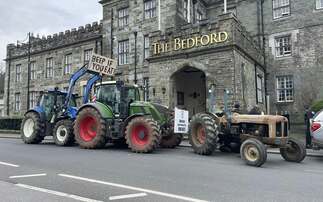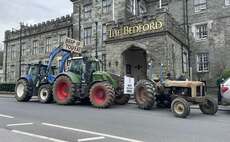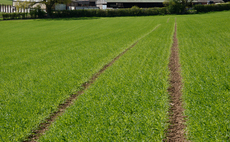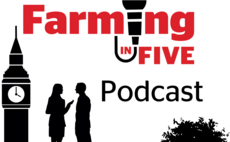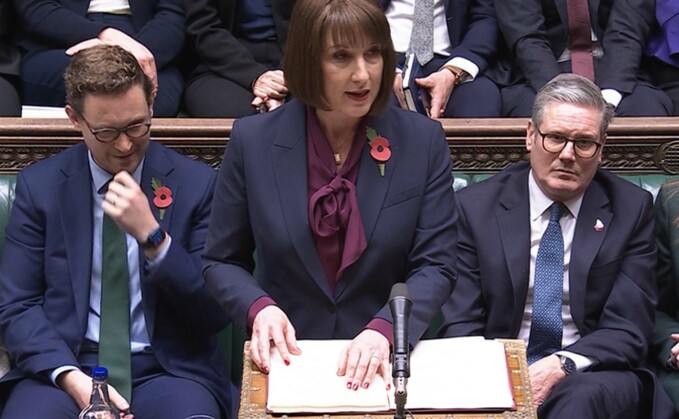
Íæż½ã½ã are ‘rightly' up in arms following the Budget but there are practical steps people can take to mitigate the effect of the changes, according to Philip Kirkpatrick, director at rural accountant Old Mill.
"There is no getting away from the fact that these are huge changes, which are going to cause a lot of heartache. The important thing is not to panic: Take stock, ensure your accountant has a thorough understanding of asset values and ownership, and make a plan," he said.
READ NOW: Autumn Budget 2024: What do farmers need to think about?
Agricultural and businesses assets will only qualify for 100% relief up to a cap of £1m per person (over and above the nil-rate band, which is tax free up to £325,000 per person, or up to £500,000 where eligible for the residence nil rate band as well).
Agricultural Property Relief
Above the £1m cap, relief on eligible assets will apply at a rate of 50%, meaning effectively inheritance tax (IHT) will be levied at 20%.
So, for an individual owning a farm worth £3m, attracting a nil-rate band of £325,000, the first £325,000 is tax free, the next £1m qualifies for agricultural (APR) or business property relief (BPR) at 100%, so remains tax free. The remaining £1.675m incurs a tax bill of £335,000.
"It is important to remember that the £1m eligible for APR/BPR is not just land – it is all the working assets, including livestock and machinery," he said.
"So that can very quickly be taken up."
However, the cost of any loans or mortgages secured against the property could be deductible.
READ NOW: Defra's £2.4bn Agriculture Budget at a 'tipping point'
The changes only take effect for deaths after April 5 2026 – so any inheritance triggered by death before that date will be subject to the existing, unlimited APR/BPR rules.
"However, even then, check the reliefs available; do not take them for granted."
For those whose estates will be subject to large tax bills on death, Mr Kirkpatrick said they can decide to spread the ownership of assets among family members to maximise the reliefs available, sell land to fund the tax bill, or borrow money to pay the tax bill.
Autumn Budget
"Borrowing money to service that debt will put a considerable strain on a farm business," Mr Kirkpatrick added.
"I think there will be a lot more land coming to the market."
However, he said the most sensible option to mitigate tax bills was to spread assets around the family. The £1m APR/BPR allowance does not pass automatically to a spouse, so the first thing is to ensure that both spouses are making the most of their allowances.
"You can pass assets onto a spouse without any tax being incurred."
Landowners can also pass assets on free of IHT, provided they survive seven years from the date of the gift.
READ NOW: Defra Secretary says Government's commitment to farmers 'remains steadfast' after Budget anger
For any gifts made before the day of the Budget there is no cap on the value or tax-free element of the gift. But gifts made from 30 October onwards will count towards the £1m cap, should the landowner die within seven years, the gift falls within that cap. If they survive more than seven years, the gift should fall outside the scope of IHT.
"These changes are going to encourage people to hand on assets much earlier in life, which probably is not a bad thing for the industry. However, how the Government has chosen to do this is going to hurt some families – particularly those suffering unexpected deaths," he said.
One option which was likely to see significant uptake is life insurance, to cover the potential cost of IHT bills.
Capital Gains Tax
When restructuring asset ownership, it was also important to consider capital gains tax (CGT) implications, he warns. While gifts to spouses are tax-free, other gifts are liable to CGT, at 18% (basic rate taxpayers) or 24% (higher rate taxpayers). Holdover relief was one option, to defer the tax liability, and if it is the donor's main house, principal private residence relief can be available.
If it is a more comprehensive business restructure or sale, business asset disposal relief (BADR - formerly entrepreneur's relief) may apply on gains up to £1m per person. Currently levied at 10% tax, BADR will increase to 14% from April 2025 and 18% from April 2026.
Pension funds – pending a consultation - are also expected to fall within the estate from April 2027, and will therefore be subject to tax on death. And those who are looking at passing assets down to the next generation will need to consider what assets they retain for their own financial security over the course of their life.
"Every business and situation is different. But what is critical now is not to bury your head in the sand. Take stock. Work with your accountant and trusted professionals, and do not rely on any tax planning or Wills that have been done in the past without checking it still stacks up.
"There is no substitute for careful planning for the future, now more than ever."











